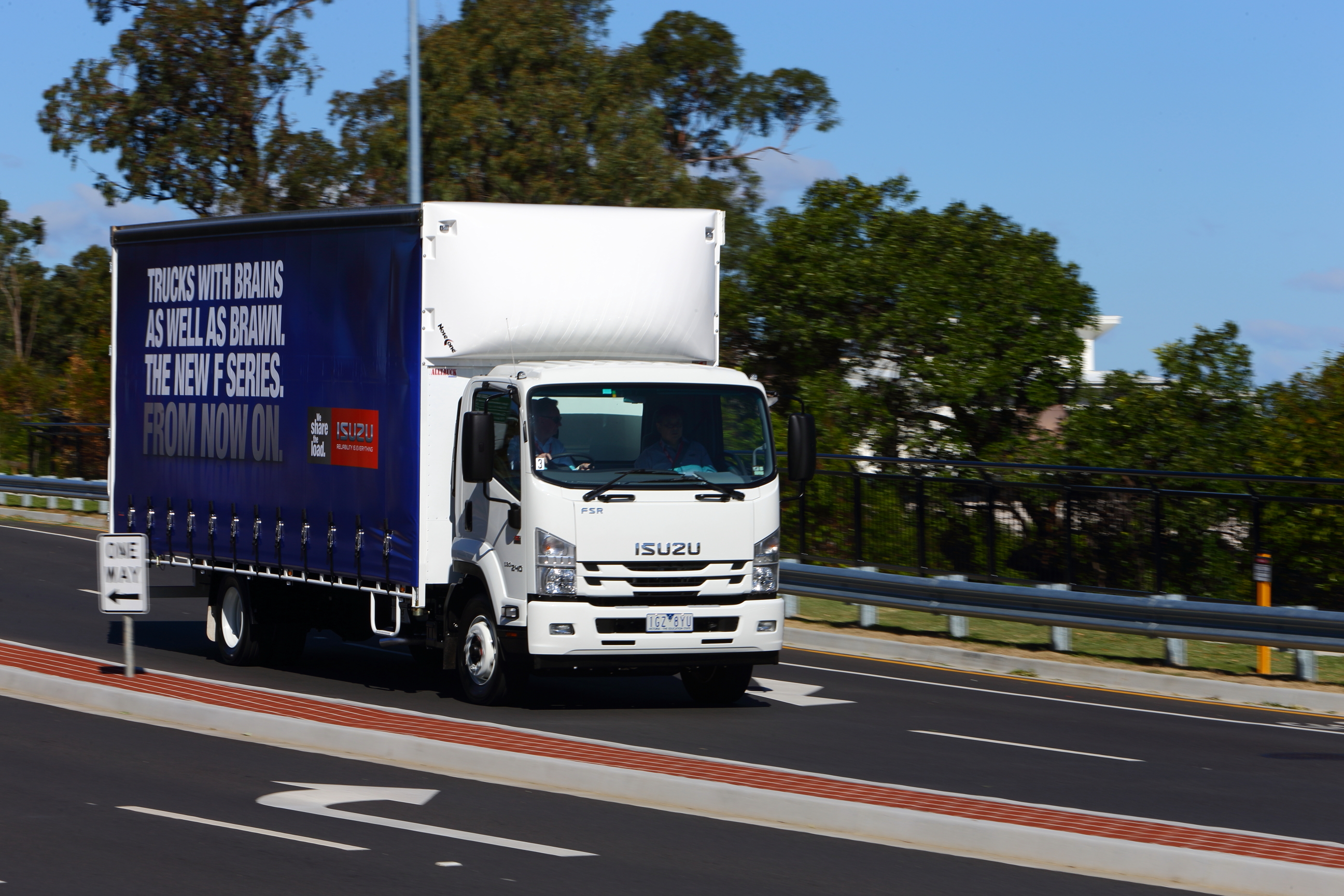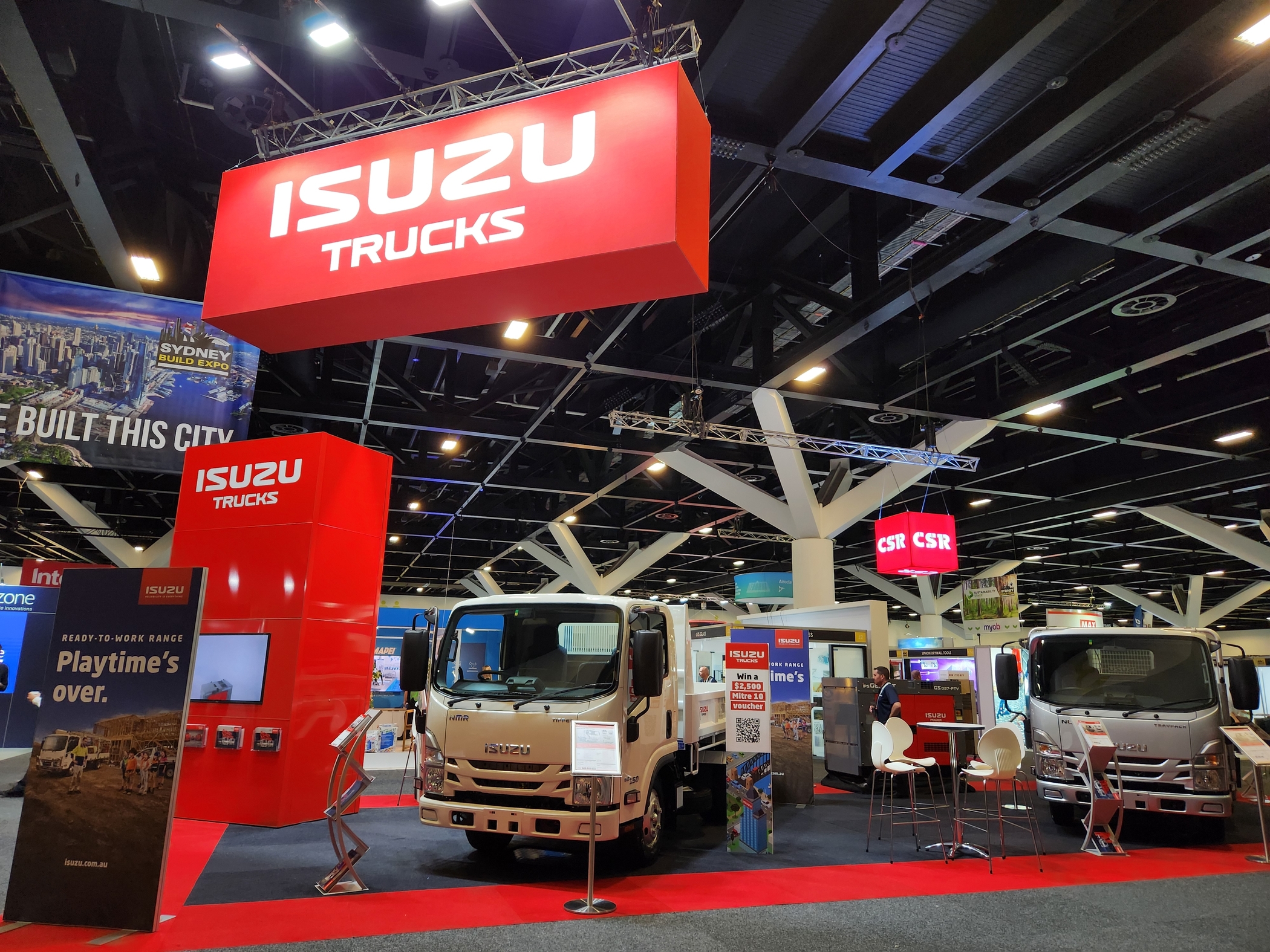IAL DIRECTOR SAYS TRANSPARENCY AND FAIRNESS VITAL CONSIDERATIONS FOR ROAD PRICING REFORMS

For many motorists, the beep of an electronic tag as they pass under a toll road gantry feels like nails on a chalkboard. Paying to access what is usually a public utility can irk the calmest commuter.
For transport and logistics operators however, the impact of road tolls goes far beyond mild annoyance. Managing the costs related to road pricing for fleets of vehicles can have a substantial impact on a business’ bottom line and, by extension, the livelihoods of countless Australian families associated with the transport sector. This has led to increasingly strong comments from the Australian Government’s Transport and Infrastructure Council about the inevitability of sweeping road pricing reforms, which has inspired Isuzu Australia Limited (IAL) Director and Chief Operating Officer, Phil Taylor, to advocate for the transport and logistics sector in the face of any significant change. “By the Transport and Infrastructure Council’s own admission, ‘road infrastructure in Australia is at a historic tipping point’,” Mr Taylor said. “Our country’s system of funding its road network is rapidly approaching a precipice. A confluence of factors – everything from the shape and size of our cities, to the increasing efficiency of the vehicles traversing the road network – has led the Australian Government to consider the conventional model of sharing the financial burden of the road network as approaching obsolescence. “These aspects – coupled with the continued push by truck manufacturers to engineer more efficient vehicles, resulting in a fall in revenue as fuel excise taxes decrease – have led the Council to the conclusion that the existing model for funding and using roads is unlikely to be sustainable in the long-term,” he said. When the Council met on November 10, they discussed further ways to transform the provision of heavy vehicle road infrastructure into an economic service. Mr Taylor said conversations about changes to road pricing are occurring in a broader context, with governments investigating ways to privatise formerly public assets. He said legislators should study the examples of privatisation within utilities sectors and apply lessons that will establish a clear path forward as they turn their attention to roads. He said it was imperative to the national economy that governments clearly articulate their agendas around any reforms to road pricing. “To their credit, the vast majority of legislators are united in their understanding of the significance of the road freight task and the economic benefits that heavy vehicles moving freely throughout the Australian road network create,” Mr Taylor said. “At present, over 75 per cent of non-bulk domestic freight is carried on roads in Australia. Disruptions to either the productivity or viability of the transport and logistics sector are going to have severe implications on broad swathes of society, and effect our national competitiveness.” Mr Taylor said that, ahead of any discussions about what the transport and logistics sector needs to contribute to the Australian road network, careful consideration needs to be given to how significant the ramifications of policy will be, and how legislative bodies can develop a constructive pathway forward. “User-pays infrastructure pricing is not without merit. It gives road owners a direct incentive to service the needs of road users. As many prominent figures in the freight and logistics sector have already explained, pricing must correlate with the efficiencies it helps create for transport operators,” he said. “If the future of road pricing in Australia becomes increasingly reflective of driver usage, then heavy vehicle operators – who are footing a larger portion of that bill – should be catered for with infrastructure that affords them greater productivity and creates opportunities to run their businesses as efficiently as possible.” As well as moving ahead with equitable solutions surrounding road pricing reforms, Mr Taylor also encouraged governments to act quickly and develop transparent plans around road pricing, so transport and logistics operators could continue their business activities with confidence. “Presently throughout Australia we’re seeing plans to increase existing tolls in major cities to fund other infrastructure developments. Whether that’s in Brisbane with Legacy Way or across the Sydney Harbour Bridge – surely one of Australia’s most iconic pieces of infrastructure – heavy vehicle operators are concerned about if, when, and by how much, their operating expenses are going to increase as a result of these decisions. “Rather than a piecemeal approach towards the mammoth issue of road pricing, there needs to be a clearly articulated strategy agreed upon by state and federal governments, so there’s a framework to ensure tomorrow’s road network effectively manages the concerns of all stakeholders, without stifling business operations.” Mr Taylor believes that an upfront and compassionate approach to legislating road pricing reforms will be immediately beneficial for businesses in the transport sector. “There are many organisations, especially small to medium-sized enterprises, that have to very carefully maintain their cashflows. Any changes to road pricing agendas need to be accompanied by upfront industry consultation. Australian transport operators should not have to worry about uncertainty or fluctuating road usage costs and how these changes are going to affect their business,” he said. “The Australian Government, along with their state and territory counterparts, will play vital intermediary roles throughout any transitional period. A clearly articulated approach to how road pricing changes will be implemented, coupled with transparency around how and when costs will come into effect will be integral in ensuring the heavy vehicle sector can operate with as much certainty as possible.” Addressing the questions surrounding road reforms as soon as possible would allow heavy vehicle operators to continue performing their vital work without any additional, and wholly unnecessary, insecurity. “On many sides, there’s trepidation around any plan to reform road pricing. That uncertainty will hamper productivity, which is why state and federal governments need to take clear steps to legislate a clearer path forward, so operators in the transport and logistics sector can most effectively manage any transitions and continue to provide the essential services that every Australian needs access to.” Mr Taylor also encouraged other figures within the transport industry to stand up and advocate for measured steps towards road pricing reforms. “Ahead of further Transport and Logistics Council discussions around the implementation of reforms, our industry needs to make sure representatives are expressing their views. The potential ramifications of an industry that remains silent out of hope that the status quo will persist could result in poor outcomes for everyone,” Mr Taylor said. “The more conversation we can facilitate between industry and government, the better chance we have of working towards an equitable, efficient road network that will continue to meet Australia’s growing freight transport needs.”

Playtime’s over, get $3,500* to spend on extras.
If you’re ready to get serious about tackling bigger jobs, grab yourself an NLR 45-150 AMT SWB Traypack from the Ready-to-Work range for $62,990 drive away*. And to prove we aren’t playing, buy any NLR Traypack before June 30 and you’ll get $3,500* to spend on genuine accessories or an Essentials service agreement.
Learn more



